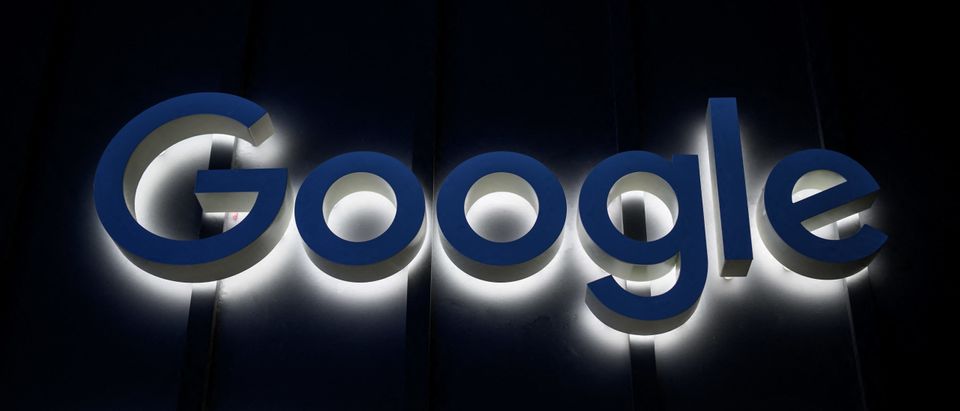What you will be viewing below is a very short 5 second clip from the “Selective Attention Test” developed by Daniel Simons and Christopher Chabris, copyrighted in 1999. We do not want to give away the punch line, but if you have not viewed the full video of just over a minute and a half, we encourage you to do so now. You can find it on YouTube. For those of you who do not know how to access this short video, or who do not want to take the time, we believe we can make our point in this abbreviated video clip below. So, stop reading now and go view that video on YouTube, otherwise, view the short video clip below and count how many times the players in white pass the basketball to each other, then read the paragraphs following. The video is on a 5 second loop, so it keeps repeating. Only count for the first 5 seconds, or you will be counting all day.

Now that you have counted, did you come up with 2 passes? That is the correct answer. Did you happen to notice the ape walking in from the right of the screen? About one-half of all who view the full video fail to see the ape walking across the screen. In the long version, he even stops in the middle of the group and beats his chest. Some of the versions of this video even have the background changing color, and one of the members wearing black walking off the screen, usually unnoticed.
The point of this short exercise is to prove that we all can be subjected to “Selective Attention”. Sometimes that is by our own fault, simply being easily distracted and inattentive. Sometimes, it is because we have been manipulated by devious entities. This is where we derive our topic of “THE EPHEMERAL EFFECT”. Most have no clue as to what “EPHEMERAL” means, so let’s first define the word. EPHEMERAL means, “Lasting for a markedly brief time.” (Wordnik.) Synonyms would include “flash, temporary, brief, transient, fleeting, passing . . .” (merriam-webster.com.)
We are going to explain “THE EPHEMERAL EFFECT” by referencing a study conducted by Dr. Robert Epstein, an American psychologist, professor, author, and journalist (Wikipedia). He is a senior research psychologist at the American Institute for Behavioral Research and Technology. You will probably have a very difficult time finding the following article by “Googling” it. There is a reason for that which will become evident by reading the article below published November 6, 2022, in the Daily Caller. We repost the article in full below.
EPSTEIN: Google Is Shifting Votes On A Massive Scale, But A Solution Is At Hand

(Photo by FABRICE COFFRINI/AFP via Getty Images)
“My research team is currently monitoring online political content being sent to voters in swing states through more than 2,500 computers owned by a politically-diverse group of registered voters (our “field agents”), and we are concerned about what we’re seeing.
We are aggregating and analyzing search results on the Google and Bing search engines, messages displayed on Google’s home page, autoplay videos suggested on YouTube, tweets sent to users by the Twitter [now known as “X”] company (as opposed to tweets sent by other users), email suppression on Gmail, and more.
We have so far preserved more than 1.9 million “ephemeral experiences” – exposure to short-lived content that impacts people and then disappears, leaving no trace – that Google and other companies are able to use to shift opinions and voting preferences, and we expect to have captured more than 2.5 million by Election Day.
In emails leaked from Google to The Wall Street Journal in 2018, Googlers (that’s what they call themselves) discussed how they might be able to use “ephemeral experiences” to change people’s views about Trump’s travel ban. The company later denied that this plan was ever implemented, but leaked content (including multiple blacklists) and startling revelations by Tristan Harris, Zach Vorhies, and other whistleblowers show that Google is indeed out to remake the world in its own image. As the company’s CFO, Ruth Porat, said in a November 11th, 2016 video that leaked in 2018, “we will use the great strength and resources and reach we have” to advance Google’s values.
Since early 2016, my team has been developing and improving Neilsen-type monitoring systems that allow us to do to Google-and-the-Gang what they do to us and our children 24/7: to track their activity, and, specifically, to preserve that very dangerous and persuasive ephemeral content.
Since 2013, I have been conducting rigorous controlled experiments to quantify how persuasive that kind of content can be. I’ve so far identified about a dozen new forms of online manipulation that make use of ephemeral experiences, and nearly all these techniques are controlled exclusively by Google and, to a lesser extent, other tech companies.
These new forms of influence are stunning in their impact. Search results that favor one candidate (in other words, that lead people who click on high-ranking results to web pages that glorify that candidate) can shift the voting preferences of undecided voters by up to 80 percent in some demographic groups after a single search. Carefully crafted search suggestions that flash at you while you are typing a search term can turn a 50/50 split among undecided voters into a 90/10 split with no one knowing they have been manipulated. A single question-and-answer interaction on a digital personal assistant can shift the voting preferences of undecided voters by more than 40 percent.
In 2020, the 1.5 million ephemeral experiences we aggregated from the computers of our 1,735 field agents showed us manipulations that were sufficient, in theory, to have shifted more than six million votes to Joe Biden (whom I supported) – again, without people knowing they were being manipulated. Among other findings: Google was sending more go-vote reminders to liberals and moderates than to conservatives; that’s a brazen and powerful manipulation that would go completely undetected unless someone was monitoring.
Our preliminary analyses of the data we have collected so far in 2022 are equally disturbing. In swing states, and especially in Wisconsin, Arizona, and Florida, we are finding a high level of liberal bias in Google search results, but not in search results on Bing (the same pattern we have found in every election since 2016). In several swing states, 92 percent of the autoplay videos being fed to YouTube users are coming from liberal news sources (YouTube is owned by Google). Unless Google backs down, it will shift hundreds of thousands of votes on Election Day itself with those brazen targeted go-vote reminders – and we will catch them doing so.
That brings me to some surprisingly hopeful news. Just before the November 3, 2020 Presidential election, I was so unnerved by the extreme bias we were seeing in our data that I decided to go public. Ebony Bowden at the New York Post wrote a powerful story about election rigging that might have made the front page, but on October 30, after a phone call between an editor and a Google official, the piece was killed – no doubt because the Post was getting 45 percent of its online traffic from the company in question.
On November 5, however, three U.S. Senators sent an intimidating letter to the CEO of Google summarizing my preliminary findings, and the company instantly turned off all manipulations in the Georgia Senate races.
We were monitoring those races through more than a thousand computers owned by a diverse and undetectable pool of real voters in Georgia, and not one received a go-vote reminder. Even more striking, political bias in Google search results dropped to zero. I had thought that such a feat would be impossible, but Vorhies explained that Google can turn bias on and off “like flipping a light switch.” He also pointed me to leaked company documents such as the manual for the company’s Twiddler software, used for “re-ranking” search results.
Will the article you are now reading change the course of history? Will it cause Google to take its digital thumb off the scales in our midterm elections? Whatever Mr. Pichai, its CEO, decides to do, we will know, and we will preserve the evidence.
And this time, we will continue to expand the monitoring system, and we will be monitoring content going not just to voters but also to America’s children. By late 2023, we will have a digital shield in place – a panel of more than 20,000 field agents in all 50 states – and we will shame Big Tech into staying clear of our elections and our kids for many years to come.”
Epstein has admitted that many, either on the right or left of a particular topic, are not influenced by much of “THE EPHEMERAL EFFECT”. However, those in the middle, those who are undecided, like many independents and moderates, can be heavily influenced by how “the deck of cards” can be stacked against them, or stacked in a way favoring one way of thinking or another.
So, why do many always “Google” something? When you say, “I am going to get something out of the fridge, do you really own a Frigidaire refrigerator, or do you own a Kenmore, KitchenAid, GE, or Amana, just to name a few. For those geeks out there, the term fridge” applies to a 15th century word meaning to “make cool again”. The word refrigerator was shortened to “fridge”, just as we shortened the word telephone to “phone”. Refrigerators have freezers in them, and so are distinguished from simple fridges (weirdworm.com). When we tell someone “I’ll Google that”, we are falling prey to an entity that dominates about 90% of all searches (abcnews.go.com). There are alternative search engines, and we highly recommend everyone to avoid using the term “Google it”, and the Google search engine more specifically. Using DuckDuckGo is what we currently recommend. Your previous searches are not kept, which could allow a malevolent entity to use them for their nefarious purposes, and to front-load content favoring the corporate elite’s views. We are pretty confident that the vast majority of readers of our blogs have had no inkling that our Nation’s citizens are being so influenced by Google, but it doesn’t stop there. Yahoo, Siri, Hound, Alexa, Robin, Extreme, Jarvis, and DataBot are other search engines which can be easily manipulated either by human induced algorithms or simply with a flip of a switch. Sure, many see the main-street media as being biased toward the Democratic left, and many know that Washington D.C. is comprised of voters who vote Democrat over 90% of the time, but the real entities, operating covertly, having “THE EPHEMERAL EFFECT” on our FREEDOM and LIBERTY are often slithering under our doors undetected while we are unaware. Do not allow “Selective Attention” to distract you from total awareness. Be smart when searching for information, as too often the truth is buried in deception and lies or is simply vanished in the vast black hole of cyber space.
